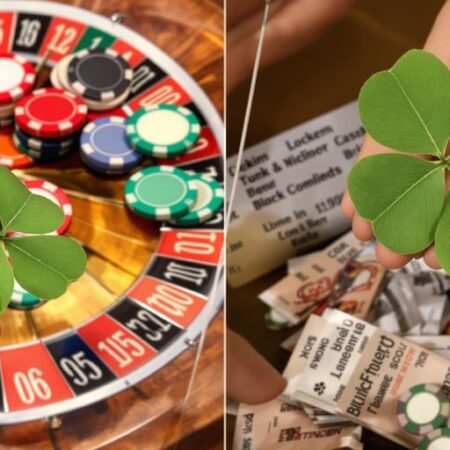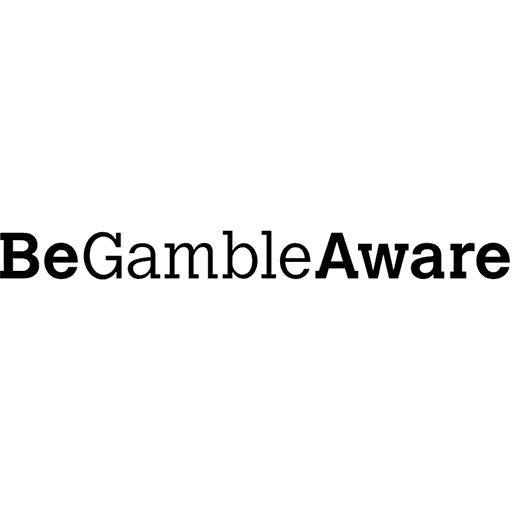Betting on games can be an exciting way to engage with your favorite sports, but it’s important to approach it with the right strategies. Whether you’re a newbie or someone with a bit of experience, understanding the fundamentals and developing a solid plan can make a big difference in your success. This article will cover essential tips and strategies that can help you navigate the world of sports betting more effectively.
Key Takeaways
- Understand the basics of betting, including odds and different bet types.
- Do thorough research on teams, players, and historical data before placing bets.
- Focus on specific sports or leagues to improve your betting knowledge and strategies.
- Practice good bankroll management to protect your funds and extend your betting activity.
- Keep track of your betting history to identify strengths and weaknesses in your approach.
Understanding The Basics Of Betting On Games

So, you’re thinking about getting into betting on games? Awesome! It can be a fun way to make watching sports even more exciting. But before you jump in, it’s super important to get a handle on the basics. Think of it like learning the rules of a new game before you start playing. You wouldn’t just start throwing the ball around without knowing what’s going on, right? Same deal here. Let’s break down some key things you need to know.
Odds Explained
Odds are basically how bookmakers tell you the chances of something happening, and how much you could win. They’re not just random numbers; they’re a language. You’ll see them in different formats, like moneyline, fractional, or decimal. Don’t let that scare you! Moneyline odds (like +150 or -200) are common in the US. Positive numbers show how much you’d win on a $100 bet, while negative numbers show how much you need to bet to win $100. Fractional odds (like 5/1) are more common in the UK, and they tell you the profit relative to your stake. Decimal odds (like 2.0) are popular in Europe, and they show the total return for every $1 wagered (stake included). Understanding these different formats is the first step to making smart bets. It’s like learning to read a map before going on a hike. You need to know where you’re going!
Types Of Bets
There’s a whole bunch of different ways to bet on games, and it’s not just about picking who wins. Here are a few common ones:
- Moneyline: Simply betting on who will win the game outright. Easy peasy.
- Point Spread: The bookmaker gives one team a “handicap” to even the odds. You’re betting on whether a team will win by more than the spread, or lose by less.
- Over/Under (Totals): Betting on whether the total score of the game will be over or under a certain number set by the bookmaker.
- Parlays: Combining multiple bets into one. You need to win all of them to get paid, but the payout is much higher. Risky, but potentially rewarding.
- Props: Bets on specific events within the game, like which player will score the first touchdown, or how many three-pointers a player will make. These can be fun, but they’re often harder to predict.
Knowing these different bet types lets you be more strategic and find opportunities where you have an edge. It’s like having different tools in your toolbox – you can choose the right one for the job.
Importance Of Bankroll Management
This is HUGE. Seriously, don’t skip this part. Bankroll management is all about managing your money responsibly so you don’t blow it all at once. It’s about setting a budget for your betting and sticking to it, no matter what. Think of it as the golden rule of betting. Without it, you’re setting yourself up for trouble. Here’s why it’s so important:
- Prevents Big Losses: You won’t lose more than you can afford.
- Allows for Long-Term Play: You can ride out the ups and downs.
- Keeps Betting Fun: It stops you from getting stressed about money.
Treat your betting money like an investment, not like free money. Decide how much you’re willing to risk, and don’t go over that amount. A common strategy is to only bet 1-5% of your bankroll on any single bet. This helps you avoid chasing losses and keeps you in the game longer. Remember, it’s a marathon, not a sprint!
The Role Of Research In Betting On Games
Betting on games isn’t just about luck; it’s about making informed decisions. Research is the backbone of any successful betting strategy. Without it, you’re essentially gambling blindly. Let’s break down why research is so important and how you can use it to your advantage.
Analyzing Team Statistics
Team stats are your bread and butter. Don’t just look at wins and losses. Dig deeper. Consider things like:
- Points per game (PPG) – both offensive and defensive.
- Field goal percentage.
- Rebounding numbers (for basketball).
- Home vs. away records.
- Recent performance (last 5-10 games).
For example, if a team consistently scores more points at home, that’s valuable information. Or, if their defense has been slacking lately, that could impact your betting decisions. You can even use machine learning algorithms to predict outcomes based on these stats.
Player Performance Insights
Team stats are important, but individual player performance can be just as crucial. Key things to consider:
- Injuries: Is a star player injured? How does that impact the team’s performance?
- Recent form: Is a player on a hot streak or in a slump?
- Matchups: How does a player perform against a specific opponent?
- Suspensions: Is a player suspended?
Player performance can shift the momentum of a game. Knowing who’s playing well, who’s injured, and how players match up against each other is vital for making smart bets.
Historical Trends And Their Impact
Looking at past results can give you an edge. Consider these historical trends:
- Head-to-head records: How have these teams performed against each other in the past?
- Home/away splits: Does one team consistently dominate at home?
- Weather conditions: How do different weather conditions affect the game?
- Coaching changes: Has a new coach changed the team’s strategy or performance?
For example, if Team A has won the last five games against Team B, that’s a trend worth noting. But remember, trends can be broken, so don’t rely on them blindly. Also, understanding this site’s betting options can help you diversify your strategies.
Specializing In Specific Sports For Better Betting
It’s tempting to bet on everything, but that’s a quick way to drain your bankroll. Instead, consider focusing your energy. Becoming an expert in one or two sports can seriously improve your betting success.
Choosing Your Focus
Think about which sports you genuinely enjoy and understand. Do you follow college basketball religiously? Are you an NFL fanatic? Your existing knowledge is a great starting point. Consider these factors:
- Your interest level: You’re more likely to stay engaged and do the necessary research if you actually like the sport.
- Data availability: Some sports have more readily available stats and analysis than others. This can make research easier.
- Your understanding of the game: Do you know the nuances of the sport, the key players, and the strategies involved?
Understanding Unique Dynamics
Each sport has its own set of unique dynamics that can impact betting outcomes. For example:
- In baseball, pitching matchups are crucial. A strong pitcher can significantly influence the game’s outcome, regardless of the team’s overall record.
- In basketball, player injuries can have a huge impact, especially if a star player is sidelined.
- In hockey, goalie performance and power play efficiency are key indicators.
Understanding these sport-specific factors is essential for making informed betting decisions. Don’t just look at the overall record; dig deeper into the details.
Leveraging Expert Knowledge
Once you’ve chosen your sport, immerse yourself in it. Read articles, listen to podcasts, and follow experts on social media. The goal is to develop a deep understanding of the sport and the factors that influence its outcomes. You can also look at sports betting strategies to help you make informed decisions.
Here’s an example of how expert knowledge can be applied:
| Factor | Impact By focusing on a smaller number of sports, you’re more likely to identify patterns and spot valuable betting opportunities that casual bettors might miss.
Mastering Bankroll Management Techniques
Okay, so you’re getting into betting on games. That’s cool. But let me tell you, it’s not just about picking winners. You gotta be smart about your money, or you’ll be broke before you know it. That’s where bankroll management comes in. It’s not the most exciting part, but it’s what separates the guys who are in it for the long haul from the ones who are just throwing money away.
Setting A Betting Budget
First things first: figure out how much you can actually afford to lose. Seriously. This isn’t about how much you want to bet; it’s about how much you can lose without it messing up your life. Treat it like an entertainment expense, not an investment. Once you’ve got that number, that’s your bankroll. Don’t even think about going over it. It’s like setting a limit on how much you’ll spend at the bar on a Friday night. Once it’s gone, it’s gone.
Unit Betting Strategy
Alright, so you’ve got your bankroll. Now, you need to divide it into units. A unit is just a percentage of your total bankroll. Most people recommend keeping it small, like 1-5%. So, if you have a $1000 bankroll, a 1% unit would be $10. This means you’d only bet $10 on a single game. It might not sound like much, but it helps you ride out the ups and downs. Here’s a quick example:
| Bankroll | Unit Size (1%) | Bet Amount |
|---|---|---|
| $500 | $5 | $5 |
| $1000 | $10 | $10 |
| $5000 | $50 | $50 |
Avoiding Chasing Losses
This is a big one. You lost a bet? It happens. Don’t try to win it back immediately by betting even more. That’s how people dig themselves into holes. Stick to your unit size, and don’t let your emotions control your betting budget. It’s tempting, I know. You feel like you need to win that money back. But trust me, it’s a recipe for disaster. Take a break, clear your head, and come back later.
Look, everyone loses sometimes. It’s part of the game. The key is to not let those losses derail you. Stick to your plan, and don’t let your emotions dictate your decisions. That’s how you stay in the game for the long run.
The Importance Of Line Shopping In Betting
Finding The Best Odds
Okay, so you’re getting into betting on games, right? One thing that’s super important, but often overlooked, is line shopping. Basically, it means checking different sportsbooks to see where you can get the best odds for the bet you want to make. Think of it like comparison shopping for anything else – you wouldn’t buy the first TV you see, would you? You’d check a few stores to find the best price. Same deal here.
For example, let’s say you want to bet on the Lakers. One sportsbook might have them at -110, while another has them at -105. It might not seem like a huge difference, but over time, those little differences add up. It’s all about maximizing your potential profit. Understanding the odds is key to making informed decisions.
Comparing Multiple Sportsbooks
So, how do you actually do this? Simple: open accounts at multiple sportsbooks. Yeah, it might seem like a hassle, but it’s worth it. Here’s why:
- More options mean better odds more often.
- You can take advantage of different promotions and bonuses.
- You’re not stuck with one sportsbook’s limitations.
Think of it like having multiple grocery stores to choose from. One might have better prices on produce, while another has better deals on meat. You go where the value is. The same applies to sportsbooks. Some platforms even offer extensive sports betting options, making it easier to diversify your strategies.
Maximizing Profitability Through Lines
Okay, let’s talk about the real reason you’re doing this: to make more money. Even small differences in odds can have a big impact on your bottom line. Let’s say you’re a serious bettor and place a lot of wagers. Those small edges add up over time. It’s like compound interest – the more you save, the faster it grows. Line shopping is like finding a slightly higher interest rate for your betting bankroll. It’s a simple way to engage in line shopping and boost your potential returns.
Line shopping isn’t about getting rich quick. It’s about consistently making smart decisions that give you a slight edge over the long run. It’s a marathon, not a sprint. The more informed you are, the better your chances of success.
Here’s a quick example of how line shopping can impact your winnings:
| Sportsbook | Odds | Potential Payout (on $100 bet) |
|---|---|---|
| Book A | -110 | $190.91 |
| Book B | -105 | $195.24 |
See? A small difference in odds can result in a bigger payout. Over many bets, this difference becomes significant. Remember to keep track of your bets to identify patterns and refine your strategies.
Interpreting Betting Trends For Strategic Advantage

Understanding Line Movements
Line movements are a key indicator of where the money is going. They reflect changes in opinion and betting activity, and understanding them can give you an edge. If a line moves significantly, it suggests a large influx of money on one side. This could be due to public perception, sharp action from professional bettors, or new information like injuries. Keep an eye on these shifts to gauge the overall sentiment and potential value.
Public Sentiment Analysis
Public sentiment can heavily influence betting lines, sometimes creating opportunities for savvy bettors. The general public often overreacts to recent results or popular narratives, leading to inflated odds on certain teams or outcomes. It’s important to understand how the public is betting and why. Websites and forums can provide insight into public opinion, but always cross-reference this information with your own research.
Fading The Public Strategy
Fading the public is a strategy where you bet against the popular opinion. The idea is that the public is often wrong, and sportsbooks adjust lines to balance their books, potentially creating value on the less popular side. It’s not a foolproof strategy, but it can be effective when used selectively. For example, if 80% of bets are on one team, consider betting on the other, especially if your analysis suggests the public is overvaluing the favored team. You can find sports betting resources online to help you make informed decisions.
Fading the public isn’t about blindly betting against popular opinion. It’s about identifying situations where the public’s perception is skewed, leading to an overreaction in the betting line. Combine this strategy with your own research and analysis for the best results.
Here’s a simple example:
| Game | Public Bets on Team A | Line Movement | Action |
|---|---|---|---|
| Team A vs B | 80% | Team B +3 to +1 | Bet on Team B |
This table shows a scenario where the public heavily favors Team A, causing the line to move in Team B’s favor. This could be an opportunity to bet on Team B, assuming your analysis supports it.
Consider these points when fading the public:
- Do your own research: Don’t rely solely on public sentiment.
- Look for significant line movements: Small changes might not be meaningful.
- Consider the sport: Some sports are more prone to public bias than others.
Keeping Track Of Your Betting Performance
Recording Your Bets
Okay, so you’re serious about this whole betting thing? Then you absolutely have to start keeping records. I know, it sounds boring, but trust me, it’s a game-changer. Think of it like this: you wouldn’t run a business without tracking your income and expenses, right? Betting is the same. You need to know where your money is going and what’s working (or, more likely, not working).
What should you record? Everything! The date, the sport, the specific bet type (moneyline, spread, over/under, etc.), the team or player you bet on, the odds, your stake, and, of course, the outcome. Did you win? Did you lose? How much did you win or lose? All of it. I personally use a simple spreadsheet, but there are apps out there designed specifically for this. Find what works for you and stick with it. It’s also important to record the type of bet you are making.
Identifying Patterns
This is where the magic happens. Once you’ve got a decent amount of data, you can start looking for patterns. Are you consistently losing on NBA games but crushing it on college football? Maybe you should stick to college football. Are you great at predicting over/unders but terrible at picking winners straight up? Focus on over/unders.
Here’s a simple example:
| Sport | Bet Type | Win Rate |
|---|---|---|
| NFL | Spread | 60% |
| NBA | Moneyline | 45% |
| MLB | Over/Under | 55% |
See? Even this basic table tells you something. You’re doing well with NFL spreads. Keep doing that! NBA moneylines? Not so much. Time to re-evaluate your strategy there. Maybe you need to do more research, or maybe you should just avoid NBA moneylines altogether. The point is, the data tells the story. You just have to listen.
Refining Your Strategies
Okay, you’ve recorded your bets, you’ve identified some patterns, now what? Now you refine your strategies. This is an ongoing process. It’s not a one-and-done thing. The sports world is constantly changing. Teams change, players get injured, new strategies emerge. You need to adapt. If something isn’t working, ditch it. Don’t be afraid to experiment. Try new things. But always, always track your results. That’s the only way you’ll know if your changes are actually making a difference.
Think of it like a science experiment. You have a hypothesis (your betting strategy), you test it (by placing bets), and you analyze the results (by tracking your performance). If the results don’t support your hypothesis, you revise it and try again. That’s how you become a better bettor.
It’s also important to stay disciplined. Don’t let emotions cloud your judgment. If you’re on a losing streak, don’t try to chase your losses. Stick to your strategy, and trust that the numbers will eventually even out. And if you’re on a winning streak, don’t get cocky. Stay humble, and keep doing what’s working. The key is consistency and a commitment to continuous improvement. By analyzing data, you can make more informed betting predictions.
Wrapping It Up
So, there you have it. Betting on sports isn’t just about luck; it’s about having a plan and sticking to it. The more you know about the games and the teams, the better your chances of making smart bets. Remember to keep your emotions in check, do your homework, and manage your money wisely. It’s a marathon, not a sprint. With time and practice, you can turn betting into a fun and potentially profitable hobby. Just keep learning and adapting, and who knows? You might just find yourself on a winning streak.
Frequently Asked Questions
What are the basic concepts of sports betting?
To start betting on sports, you need to understand a few key ideas. This includes knowing how odds work, the different types of bets you can place, and the importance of managing your money.
How can research improve my betting success?
Doing research is very important in sports betting. By looking at team stats, player performances, and past game results, you can make better choices when placing your bets.
Why should I focus on one sport when betting?
Specializing in one sport helps you learn its details better. Each sport has its own rules and strategies, so knowing one well can give you an edge.
What is bankroll management and why is it important?
Bankroll management means setting a budget for how much money you can bet and sticking to it. This prevents big losses and helps you bet responsibly over time.
What does line shopping mean in sports betting?
Line shopping is the practice of looking for the best odds across different sportsbooks. Even small differences in odds can affect how much you win, so it’s worth checking around.
How can I track my betting performance?
Keeping a record of your bets is crucial. Write down details like the type of bet, the odds, and the outcome. This helps you see what works and what doesn’t, so you can improve your strategy.












